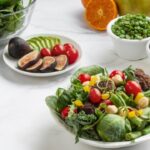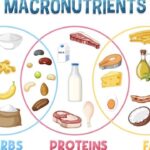After the day’s hustling and bustling, it can be tiring to start cracking your brains over what to prepare for dinner. To some, cooking is a hobby, but cooking every day can be overwhelming and not everyone likes it, which is why a lot are considering meal prep these days. The question is, how can a beginner start the Meal Prep 101 journey? The good news is that it is easy, and everything will be explained in this guide.
The term meal prep is not new; some have meal prepped their meals without knowing. This is particularly true for busy moms with picky toddlers. Instead of wasting food and going through the stress of cooking daily, the idea of cooking the food that you will consume weekly is the solution.
I understand those thoughts going through your mind, like how is that possible and won’t the food lose its taste and nutritional value? Don’t worry, I’ll show you how to plan and prepare a nutritious meal, as well as other cooking tips.
In this article, you will learn how to start Simple Meal Prep 101. However, it is one step at a time. This means that you have to understand what meal prep is all about, its benefits, and then how to make a prep meal plan.
What is Meal Prep 101?
Meal prep means preparing dishes ahead of time. It is common for busy individuals, especially those without domestic staff. It’s not about being lazy; the day’s stress is enough to make someone tired, and in order not to go to bed on an empty stomach or snack daily, lots of people do meal prep.
When you prep your meal, it saves you time and energy. In addition, you can still maintain a healthy lifestyle. To ensure that you always have healthy foods available, having several foods stored is what you need.
Whether you a vegetarian, you can prepare nutritious meals. Moreover, you’re getting all the nutrients your body requires without turning to junk food or processed meals.
You are not cooking to beat Hilda Baci records for the Guinness Book of Records. Your purpose is different from hers, and there are lots of reasons why you should cook large foods which takes several hours. Below are the benefits of meal prepping.
Meal Prep 101 Benefits
1. Saves Time
You can save a ton of time each week when you meal prep. There will be no more rushing to the supermarket at the last minute to get ingredients or scrambling to decide what to eat. With the foods in your freezer, you are sure of having a sumptuous meal for dinner.
2. You Save Money
If you don’t know, preparing meals ahead will help you cut costs on eating out, or spending extra as there is no guarantee that prices of goods will remain the same. You can save money and reduce stress during the workday by planning your meals.
If you cook enough food to last the entire week, you can cut down on the amount of money you spend on groceries. Because goods and services are becoming more expensive, buying in bulk can help you save money
3. Have Food Options
Eating the same thing every day makes one lose interest in that food. To keep things exciting throughout the week, you can cook many different meals and snacks. Without the pressure of having to cook every day, you may now try out different dishes and flavors.
4. Eat Healthier
You have total control over what ingredients go into your meals when you meal prep. This makes it simpler to change your food. Besides, through meal prepping, you are able to maintain healthy eating habits by taking the right portion size. If you want to avoid gaining weight then you must mind what you eat and portions in this case plays an important role.
5. Minimize Food Waste
Have you ever recall the number of occasions you went out to buy large quantities of fresh vegetables only for them to go bad you before you could use them? When you use Meal Prep 101, it will be easier for you not to waste food through portioning your meals and only buy the necessary food items you need.
It is also reduces leftovers. In case you have some leftovers, make sure that they are stored in different containers. With this, you only pick a bowl or a food container that you can complete.
How To Do Quick Meal Prep 101
1. Create a meal plan for the week
The first thing to do when meal prepping is to plan the meals for the week. You should check the food items you already have in order to minimize waste. Plan your meals according those items and include veggies that are suitable for several recipes for the week.
How to start:
Some ideas for simple breakfast ideas to consider include smoothies or oats that have been left to soak. For lunch, a hearty salad can serve, while for dinner, you may have plain foods such as pasta or stir fry. Add some appetizers like fruits and nuts .
When you have come up with your meal plans, create a shopping list. When you go shopping, do not buy something that you see, only buy what you need.
2. Choose simple recipes
For beginners, use simple recipes that will be easier for you to handle. Therefore, choose meals that can be easily prepared without needing many ingredients. Meals such as soups, stews and salads are good choices since these are foods that can easily be prepared in large batches, not forgetting the fact that they can also be easily stored.
How to start:
Pre-slice vegetables, prepare meats for marinating, parboil grains to save time when preparing meals during the other days of the week. You may have to invest in equipment such as food processor or mandolin to help in chopping and slicing work which would otherwise be time consuming.
Choose a specific time each week for meal prep. Set aside a few hours during the weekend to cook and package your meals for the week. When it comes to storing your prepped meals, buy quality containers that dishwasher-safe. In addition, you should separate food containers; it helps you to pick the right portion of food so that there won’t be more leftovers.
3. Buy quality food containers
High-quality food containers can keep your meals fresh. Use reusable, and leak-proof food containers store your prep meals. Go for containers made from premium materials like glass or plastic that are BPA-free. These storage containers may be easily transferred from the refrigerator to the oven and are good for meal reheating.
4. Schedule a prep day
One of the most effective strategies for successful meal prep is to set aside a specific day to do your meal prep. Spend a few hours of your time in the kitchen. Remember, it is not a cooking contest; the purpose is to save yourself time and stress during busy weekdays.
For example, let’s say your prep day is Saturday evening. Start by creating a meal plan for the week ahead, taking into account your schedule. Make a list of all the ingredients you will need and stock up. Once you’re back home, start washing, chopping, and portioning out your veggies, proteins, and grains.
With all your ingredients prepped, you can quickly prepare a variety of nutritious meals for,the whole without having to spend time on so much cooking every day, even after a busy day at work.
5. Batch Cook
When you batch cook, it saves you the stress of visiting the kitchen twice a day, preparing breakfast and dinner. The plan is to prepare a lot of food so that it can be portioned out and frozen for later use. For those with hectic schedules who wish to eat healthily but don’t have time to prepare every day, this is the ideal approach.
6. Store your food properly
After cooking, let everything cool down before sharing your food into serving portions. Use airtight containers to divide it into separate servings. You can freeze them for extended storage or keep them in the fridge for up to four days.
How long is healthy for meal prep?

The ideal amount of time for meal preparation is typically 3–4 days in advance. This allows for optimal freshness and minimizes the risk of food spoilage. By preparing your meals a few days ahead of time, you can save yourself time and stress throughout the week, making it easier to stick to a healthy eating routine.
Meal prepping for longer periods, such as a week or more, can be convenient but may compromise the quality and taste of your meals. Certain ingredients, like fresh produce and proteins, can lose their nutrients and become less appetizing over time. It’s best to stick to 3–4 days for optimal nutrition and flavor.
When reheating, ensure that your food reaches an internal temperature of 165°F (74°C) to kill any harmful bacteria.
Whether you’re a seasoned meal prepper or a beginner looking to start meal prepping, this guide is for everyone. Now is the time to take charge of your diet with Meal Prep 101.



